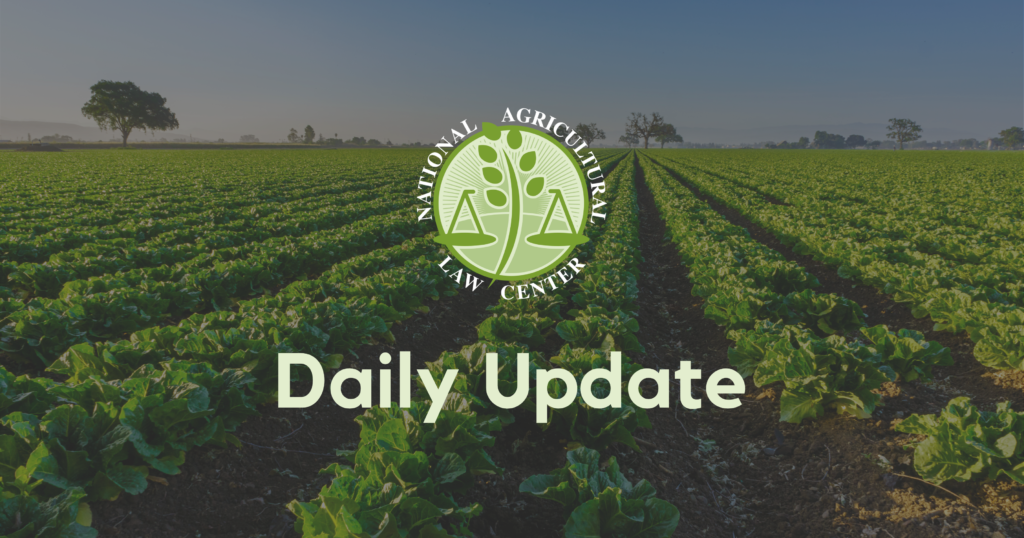A comprehensive summary of today’s judicial, legislative, and regulatory developments in agriculture and food. Email important additions HERE.
JUDICIAL: Includes constitutional law, First Amendment, “ag gag”
In Animal Legal Def. Fund v. Reynolds, No. 19-1364 (8th Cir. 2021), the Eighth Circuit Court of Appeals considered whether an Iowa state law which prohibits people from access agricultural production facilities under false pretense or by making false statements violates the First Amendment. Ultimately, the court found that one provision of the law was constitutional, while the other provision was not.
In 2012, Iowa adopted the Agricultural Production Facility Fraud which prohibits a person from: (1) obtaining access to an agricultural production facility by false pretenses; and (2) making a false statement or representation as part of an application or agreement to be employed at an agricultural production facility if the purpose of doing so is to commit an act not authorized by the owner of the facility. Several organizations filed a lawsuit challenging the law, arguing that it violates the First Amendment. According to the First Amendment, the state shall not pass any law “abridging the freedom of speech.” This is generally interpreted as meaning that government does not have the power to restrict expression due to its “message, its ideas, its subject matter, or its content.” Content-based laws are laws that target speech based on its communicative content. In general, courts will review such laws with the strictest scrutiny and approach them as “presumptively unconstitutional.” The Eighth Circuit began by identifying both provisions of the Iowa law – referred to as the Access Provision, and the Employment Provision – as content-based laws because an observer would need to examine the content of speech to determine whether the Iowa law would prohibit it. Next, the court reviewed each provision to determine whether it violated the First Amendment. With regard to the Access provision, the court determined that it did not violate the First Amendment because it prohibits lies associated with a legally cognizable harm, specifically trespass to private property. However, the same was not true for the Employment provision. According to the court, that provision was too broad to be constitutional. Under the Employment provision, a person could violate the law by lying to a potential employer about their clothing, exercise routine, or sports team they support. Simply put, the Eighth Circuit found that the Employment provision was too broad to guard against the injury that the law is trying to avoid.
The Eighth Circuit concluded by upholding the constitutionality of the Access provision, while affirming that the Employment provision is unconstitutional. It has remanded the case back to the lower court for further proceedings.
REGULATORY: AMS, EPA
AGRICULTURAL MARKETING SERVICE
Final rule implementing a recommendation from the Prune Marketing Committee to increase the assessment rate established for the 2020-21 and subsequent crop years. Info here.
Proposed rule would change the maturity requirements currently prescribed under the Florida avocado marketing order. The order regulates the handling of avocados grown in South Florida and is administered locally by the Avocado Administrative Committee. Info here.
Final rule implementing a recommendation from the California Olive Committee to increase the assessment rate for the 2021 fiscal year. Info here.
ENVIRONMENTAL PROTECTION AGENCY
Notice announcing that the EPA has received applications to register new uses for pesticide products containing currently registered active ingredients. Info here.
